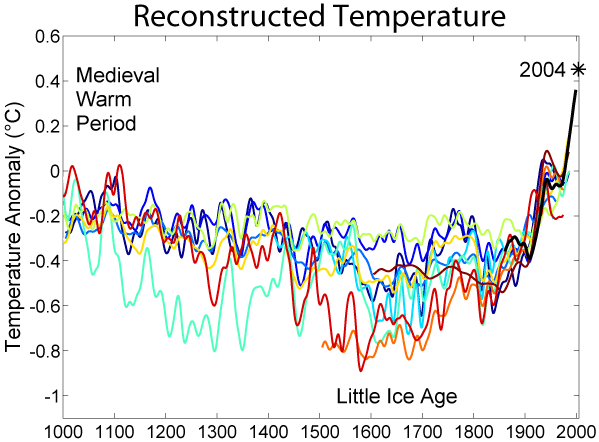The subject of reconstructions of temperature variations of the past millennium has been discussed many times before on this site (see e.g. here, here, here, and here). Despite the apparent controversy, the basic conclusion–that the global and hemispheric-scale warmth of the past few decades appears anomalous in a very long-term context–has stood up remarkably well in many independent studies (see Figure 1).

Figure 1. Reconstructions of Northern Hemisphere temperatures for the last 1000 years (various colored curves) compared with instrumental record (black curve).
[source: Wikipedia] (click to enlarge)
This is not to say that all estimates agree in their details. Indeed, there is a fair scatter among the various published estimates. [Read more…] about A New Take on an Old Millennium